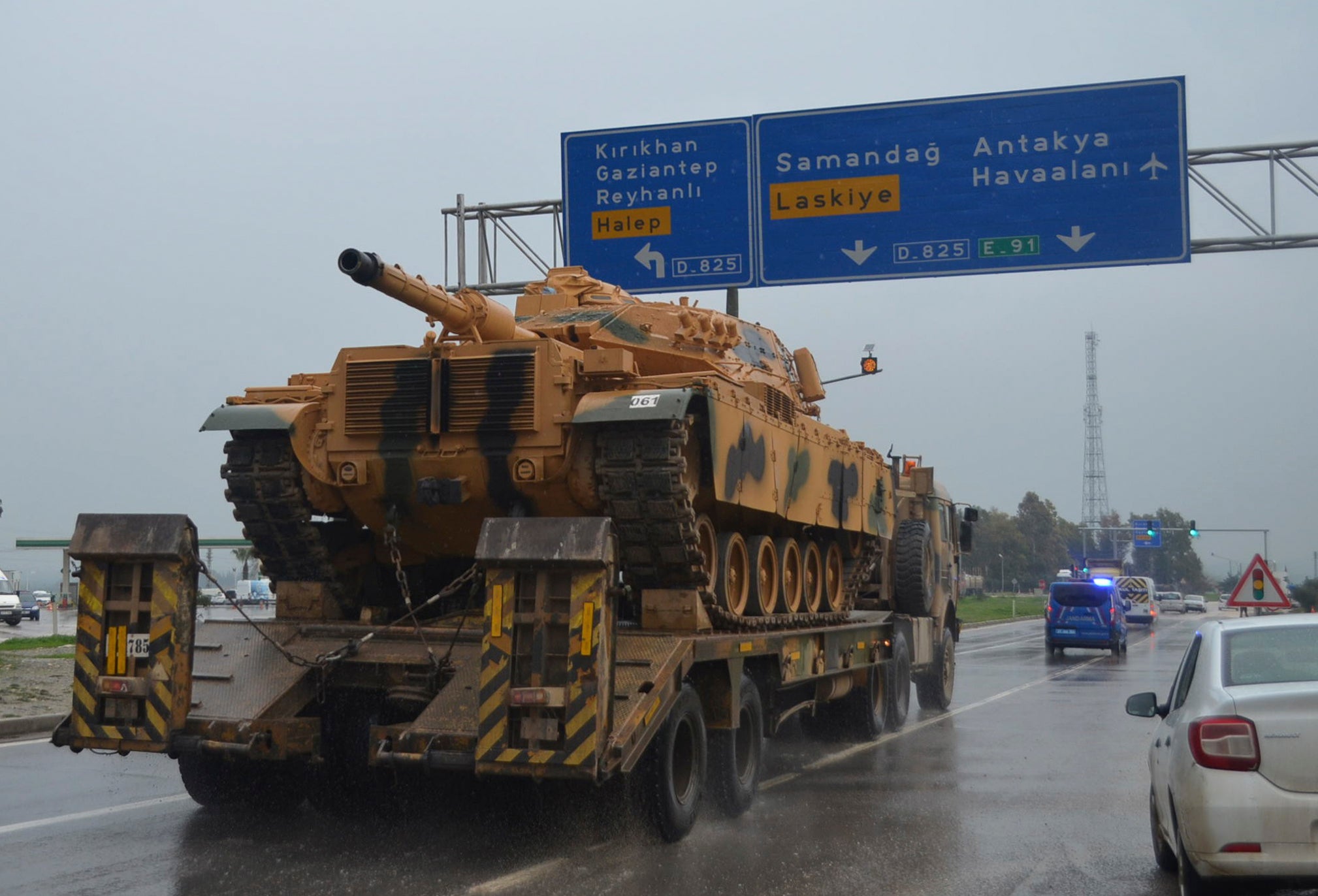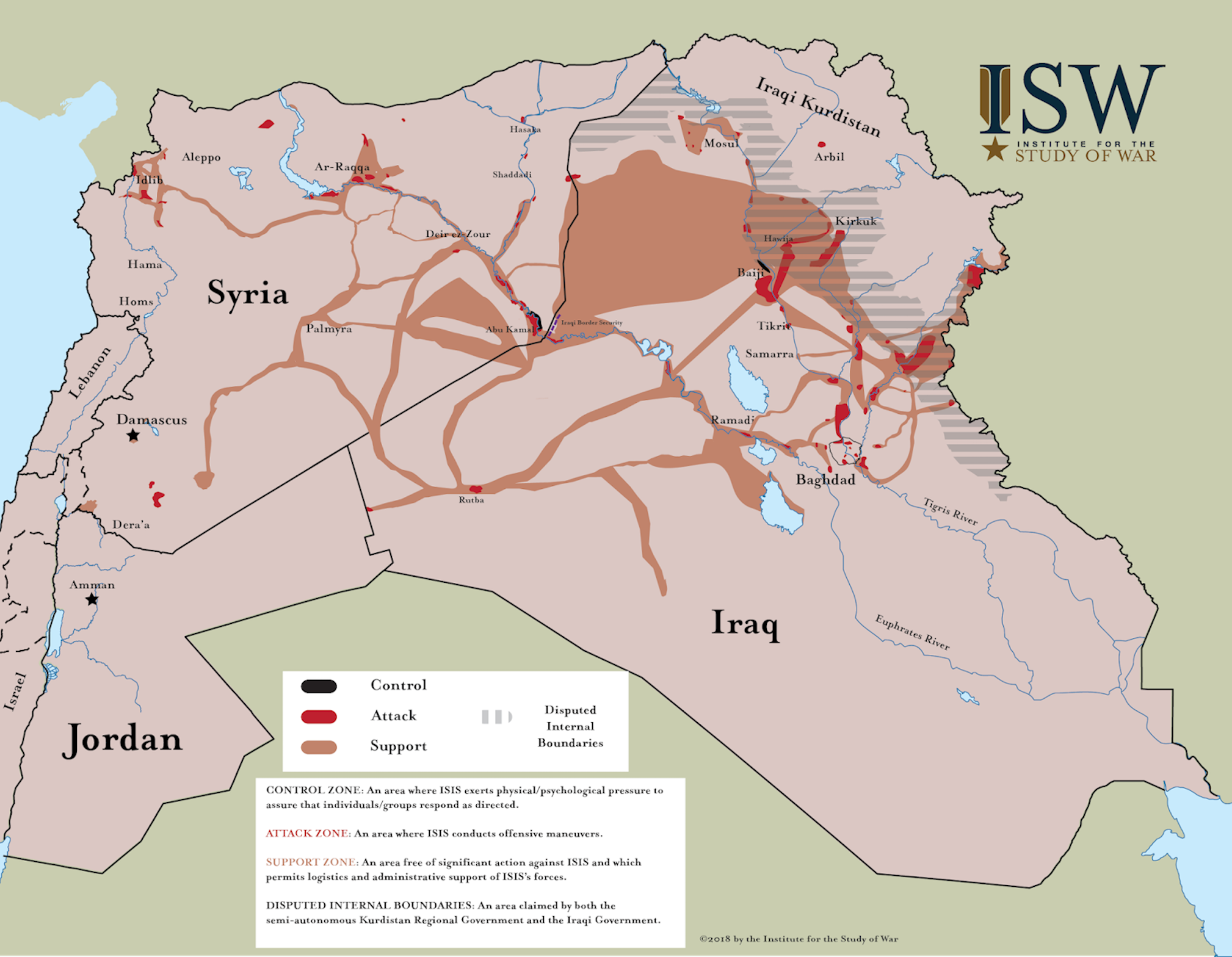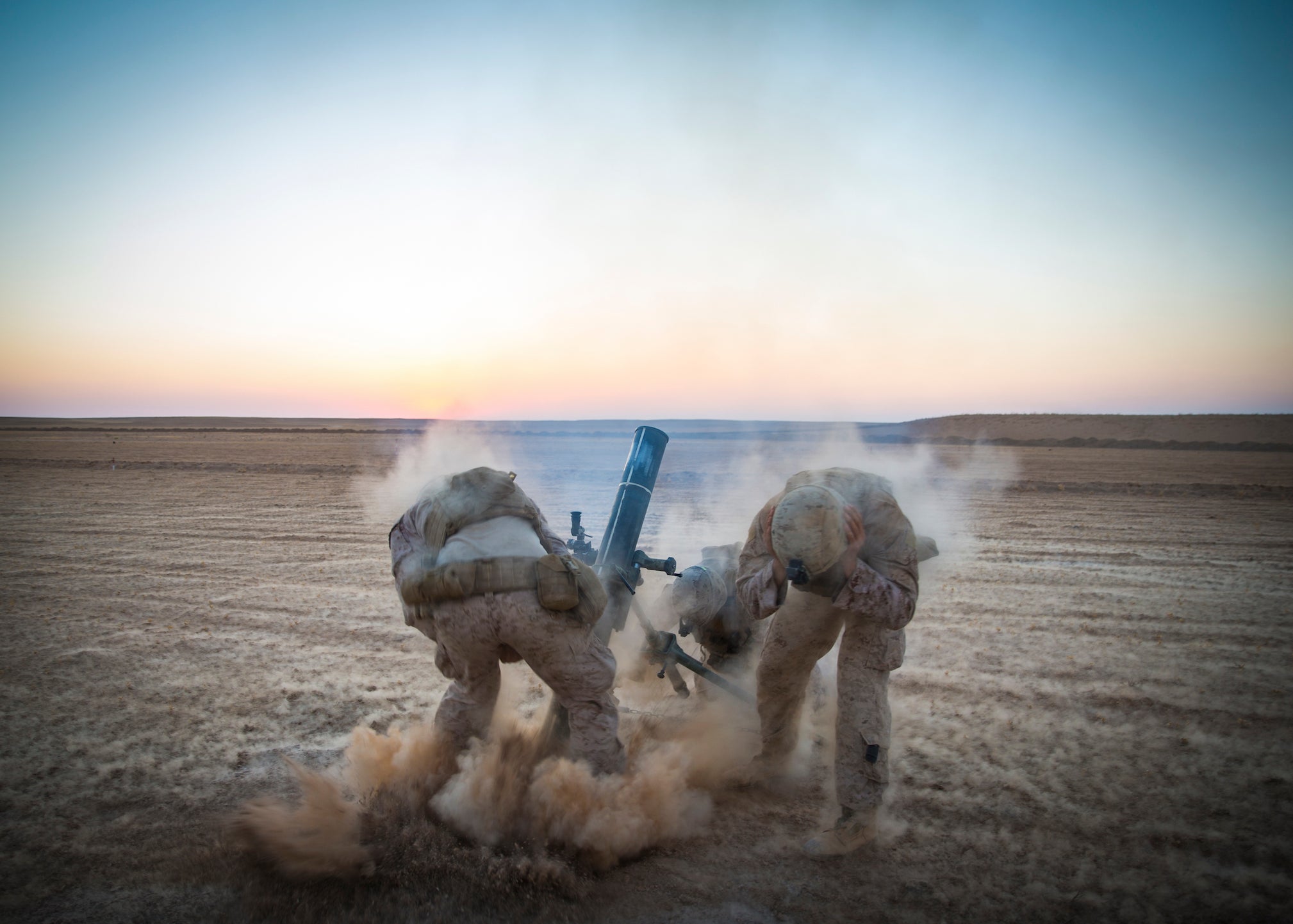Trump's plan to hand war against Isis to Turkey is fraught with risks
'Whatever one thinks of a long-term US military presence in Syria, leaving suddenly and without a plan opens the door to conflict'
Your support helps us to tell the story
From reproductive rights to climate change to Big Tech, The Independent is on the ground when the story is developing. Whether it's investigating the financials of Elon Musk's pro-Trump PAC or producing our latest documentary, 'The A Word', which shines a light on the American women fighting for reproductive rights, we know how important it is to parse out the facts from the messaging.
At such a critical moment in US history, we need reporters on the ground. Your donation allows us to keep sending journalists to speak to both sides of the story.
The Independent is trusted by Americans across the entire political spectrum. And unlike many other quality news outlets, we choose not to lock Americans out of our reporting and analysis with paywalls. We believe quality journalism should be available to everyone, paid for by those who can afford it.
Your support makes all the difference.Turkey has begun bolstering military positions along its southern frontier as Ankara and the Donald Trump administration prepared for what specialists are describing as a risky, geopolitically fraught handover of anti-Isis efforts from American to Turkish forces in northern Syria.
Video footage posted online and accounts collected by local and international media showed Turkish military personnel and hardware and Syrian rebels backed by Ankara on the move, both inside areas of Syria under Turkey’s sway and along the 822km border between the two countries.
Turkish media on Tuesday reported Syrian rebels were moving in on Manbij, a pocket of territory east of the Euphrates river in Syria that Turks controlled by US-backed Kurdish-led forces considered hostile by Ankara.

Mr Trump last week announced he was withdrawing all of the 2,000 or so US troops operating out of northern Syria, to the worry of Washington lawmakers and foreign policy figures who argue that Isis has not yet been defeated and that the pullout could further empower Iran.
A US military delegation is scheduled to arrive in Turkey this week to discuss northern Syria.
“With Trump announcing that the US will withdraw troops from Syria, this is looking more like a handover to Turkey, especially in the fight against Isis,” Yusuf Erim, a political analyst for Turkey’s state-owned TRT World television told The Independent.
“Is this a good decision? That depends on how this is going to be coordinated,” he said. “If the US Is just going to quickly withdraw and allow for a power vacuum where all the major players and non-state actors are going to scramble for land grabs, that will heavily destabilise Syria.”
The complicated eight-year civil war in Syria has cost Turkey dearly.
It lost once-promising trade channels and hosts 3.5 million Syrian refugees. It has struggled to stave off spillover from its southern neighbour as well as forge an outcome that would serve its interests. Experts say Turkish president Recep Tayyip Erdogan would relish fighting Isis, which subscribes to a puritanical version of Sunni Islam that is opposed to the Hanafi school practised by most Turks.
“Erdogan is not ideologically sympathetic to Isis and would very much like to see them wiped out,” Selim Sazak, a Turkey scholar at the Watson Institute of Brown University, told The Independent. “If the conditions are right, I think he’d totally take the fight to Isis.”
But handing Turkey the role of proxy for US interests in northern Syria is for many regional specialists a dubious and confusing proposition. Nicholas Danforth, a Turkey expert at Washington’s Bipartisan Policy Center, called it a “surreal idea”.
Though Ankara has the second largest armed forces in Nato, its Syria goals diverge significantly from those of Washington. Over the last four-and-a-half years, US troops in Syria partnered with a powerful Syrian Kurdish militia called the People’s Protection Unit (YPG) to fight Isis and later confront Iranian influence.
Turkey, meanwhile, hopes first of all to roll back the YPG, which it considers indistinguishable from the outlawed Kurdistan Workers Party (PKK), and has already crushed pockets of Kurdish control in northwest Syria. Far from seeking a confrontation with Tehran, it is partnered with Iran and Russia in discussions over Syria.

To reach Isis’ last remaining desert pockets, Turkey must to fight its way past both the YPG-controlled northeastern Syria, where British and French troops continue to operate and have yet to announce a pullout, as well as forces loyal to Bashar al-Assad’s Damascus regime.
“It is a difficult task for Turkey and that is why Turks urged Trump not to withdraw immediately,” Gonul Tol, Turkey specialist at the Middle East Institute in Washington, told The Independent. “If Turkey wants to reach deeper into Syria to fight Isis, it needs Russian military and political support otherwise it can clash with regime forces or Iranian militias.”

Despite the size of its army and successes against both Isis and the YPG close its border, Turkey experts questioned the country’s ability to operate far within Syria -- including areas such as Raqqa and Deir Azzour, where Isis maintains influence and continues to launch attacks.
“Turks can’t supply that deep,” said one Western analyst briefed by both US and Turkish officials. “Nor can they replicate American air power in any sense of the word.”
The handover comes amid the latest sudden shift in US Middle East policy under Mr Trump.
After a promising start, relations between Mr Erdogan and Mr Trump soured over Washington’s alliance with the Kurdish-led Syrian Democratic Forces, dominated by the YPG.
Turkey and the US are also at odds over demands for Washington extradite exiled cleric Fethullah Gulen, who is living in Pennsylvania, and the White House's insistence that Ankara release US citizens and diplomatic personnel held in detention.
But Mr Trump’s decision to withdraw US forces, reportedly prompted by a 14 December phone call with Mr Erdogan, has resuscitated warm ties.
The White House announced that Mr Trump accepted an invitation by Mr Erdogan to take a trip next year to Turkey, where the American president’s company has multiple business interests, including a flashy namesake luxury high-rise residential and commercial complex in a swanky district of Istanbul.
Many were flummoxed at the logic behind Mr Trump’s Syria plans, and suspect his administration is flailing dangerously in part because there is little the US can do at this point to meet any of its Syria aims.

Mr Trump also claimed in a Christmas Eve tweet that “Saudi Arabia has now agreed to spend the money necessary to rebuild Syria instead of the United States,” though it remained unclear to what he was referring.
Saudi Arabia, a regional power, has poor relations with Damascus, and complicated ties to almost all of Syria’s neighbours.
“It’s a sign of just how grim the options are that a return of regime forces now seems like the most likely path to some measure of stability,” said Mr Danforth. “Whatever one thinks of a long-term US military presence in Syria, leaving suddenly and without a plan opens the door to conflict between Turkey, Assad and the YPG, which in turn gives Isis the perfect chance to regroup.”
The impromptu handover, initiated over the objections of Pentagon and senior White House officials, may also show Mr Trump’s weakness and lack of experience, as he is played by more seasoned politicians such as Vladimir Putin and Mr Erdogan.
“Ankara is using the withdrawal for what it wanted all along — the American facilitation of their presence east of the Euphrates River to create a buffer,” said the analyst briefed by US and Turkish officials.
“Erdogan is careful to say the Isis mission needs US support, because that is entirely different than what they want. Trump is just too dumb to know it — and doesn’t ultimately care.”

Join our commenting forum
Join thought-provoking conversations, follow other Independent readers and see their replies
Comments